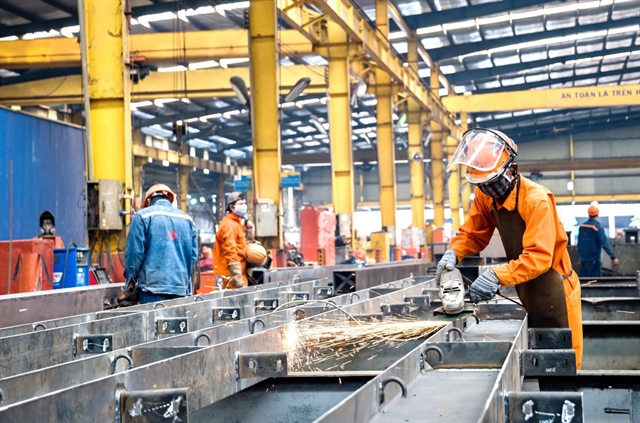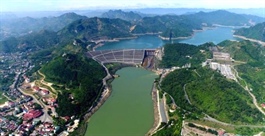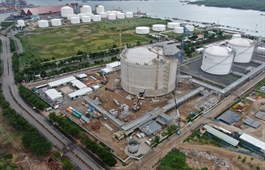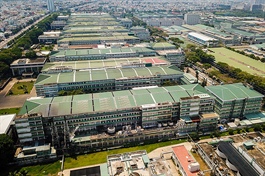Opportunities abound for Vietnamese support industries
Opportunities abound for Vietnamese support industries
Given the recent shifts in global value chains, the growth prospects of Vietnam's supporting industry are promising if the country adopts consistent, timely and correct policies and orientations.
Major potential
Vietnam's supporting industry has great development prospects because it can participate deeply in the global value chain of multinational groups operating in the country. However, most domestic enterprises are currently only engaged in the lowest stage of the value chain, which is the assembly of imported parts, and are dependent on multinational corporations.
According to the Vietnam Industry Agency (VIA) under the Ministry of Industry and Trade, Vietnam's labor costs are increasing to a level that is no longer viewed as a competitive advantage. Accordingly, if the domestic supporting industry cannot develop quality products and reduce prices, multinational corporations will move production to other countries once government incentives expire. Therefore, if Vietnam cannot establish enterprises of regional and international scale soon to lead and develop its supporting industry, it will lose the opportunity to accelerate the country’s industrialization and modernization process.

Enterprises need support policies for further development |
Vietnam is a signatory to many free trade agreements (FTAs), facilitating the development of its industries, especially electronics, mechanical engineering, textiles and footwear. Along with a stable political environment, and an abundant, skilled labor force, this is a favorable opportunity for better growth of Vietnamese supporting industry enterprises.
Maximizing competitive advantages
According to the VIA, the prerequisite for developing supporting industries is the development of the domestic processing and manufacturing industry, opening up market opportunities for supporting industry enterprises to become suppliers and participate in the supply chain of producers and assemblers of final products. On the other hand, Vietnam needs to expand foreign markets, and receive technical knowledge and production skills from abroad to improve its production capacity.
Experts also recognized that economic restructuring, choosing a new growth model, industrial restructuring and other issues are becoming urgent in order to maximize Vietnam's competitive advantages so that it can achieve stable and sustainable development. However, industrial development requires a lengthy process of accumulating management and production skills, and it is difficult to make a leap without strong support from the state.
The main force in Vietnam’s industrial production are small and medium-sized enterprises, accounting for 98 percent. With such a low starting point, they need more incentive policies to improve their production level and competitiveness. On that basis, the state needs to direct social resources into the production sector, as well as adopting a long-term policy, allocating large resources to support processing and manufacturing enterprises and help them reach regional and international standards.
|
To boost the supporting industry development, Vietnam needs to orient the selection and encouragement of FDI projects in industries by 2030 with priorities given to the use of domestic raw materials and components, commitment to technological transfers, and on-site human resource training. |
























